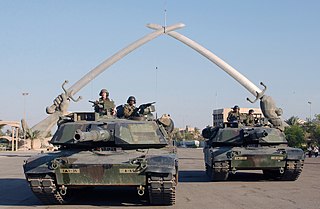
The following is a timeline of major events during the Iraq War, following the 2003 invasion of Iraq.

The Badr Organization, previously known as the Badr Brigades or Badr Corps, is an Iraqi Shia Islamist and Khomeinist political party and paramilitary organization headed by Hadi al-Amiri. The Badr Brigade, formed in 1982 and led by Iranian officers, served as the military arm of the Supreme Council for Islamic Revolution in Iraq (SCIRI), a Shia Islamic party based in Iran. The Badr Brigade was created by Iranian intelligence and Shia cleric Mohammad Baqir al-Hakim with the aim of fighting the Ba'athist regime of Saddam Hussein during the Iran–Iraq War. Since the 2003 US-led invasion of Iraq, most of the Badr Brigade fighters have entered the new Iraqi army and police force. Since 2003, the Badr Brigade and SCIRI were considered to be one party, but have recently unofficially separated with the Badr Organization now being an official Iraqi political party. Badr Brigade forces, and their Iranian commanders, have come to prominence in 2014 fighting the Islamic State of Iraq and the Levant (ISIL) in Iraq. It is a part of the Popular Mobilization Forces.

Tal Afar is a city in the Nineveh Governorate of northwestern Iraq, located 63 km (39 mi) west of Mosul, 52 km (32 mi) east of Sinjar and 200 km (120 mi) northwest of Kirkuk. Its local inhabitants are exclusively Turkmen.
The 2007 Amirli bombing was a suicide car bomb attack that occurred on July 7, 2007, in a market in the town of Amirli, Iraq, whose residents are mainly Shia Turkmens. The bombing killed 156 people with 255 injured.
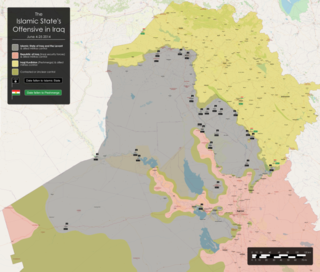
The Northern Iraq offensive began on 4 June 2014, when the Islamic State of Iraq and Levant, assisted by various insurgent groups in the region, began a major offensive from its territory in Syria into Iraq against Iraqi and Kurdish forces, following earlier clashes that had begun in December 2013 involving guerillas.
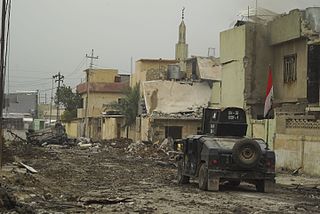
The War in Iraq (2013–2017) was an armed conflict between Iraq and its allies and the Islamic State. Following December 2013, the insurgency escalated into full-scale guerrilla warfare following clashes in the cities of Ramadi and Fallujah in parts of western Iraq, and culminated in the Islamic State offensive into Iraq in June 2014, which lead to the capture of the cities of Mosul, Tikrit and other cities in western and northern Iraq by the Islamic State. Between 4–9 June 2014, the city of Mosul was attacked and later fell; following this, Prime Minister Nuri al-Maliki called for a national state of emergency on 10 June. However, despite the security crisis, Iraq's parliament did not allow Maliki to declare a state of emergency; many legislators boycotted the session because they opposed expanding the prime minister's powers. Ali Ghaidan, a former military commander in Mosul, accused al-Maliki of being the one who issued the order to withdraw from the city of Mosul. At its height, ISIL held 56,000 square kilometers of Iraqi territory, containing 4.5 million citizens.

The departure of US troops from Iraq in 2011 ended the period of occupation that had begun with the U.S.-led invasion in March 2003. The time since U.S. withdrawal has been marked by a renewed Iraqi insurgency and by a spillover of the Syrian civil war into Iraq. By 2013, the insurgency escalated into a renewed war, the central government of Iraq being opposed by ISIL and various factions, primarily radical Sunni forces during the early phase of the conflict. The war ended in 2017 with an Iraqi government and allied victory, however ISIL continues a low-intensity insurgency in remote parts of the country.
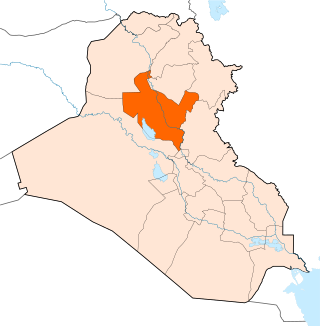
The siege of Amirli was a siege of the predominantly Shi'ite Turkmen town of Amirli in Iraq by the Islamic State of Iraq and the Levant (ISIL) during the War in Iraq. The town was besieged by ISIL forces for 50 days from June 2014, lacking access to food, electricity, and water. Most of the residents are Shia Turkmen, who had organized local self-defense militias to fight against ISIL. On August 31, the Iraqi military reportedly broke the siege and entered the town. It has been described as "Iraq's biggest victory against ISIS", as of September 2014.
The following lists events that happened during 2014 in Iraq.
The siege of Saqlawiyah was a siege of the town of Saqlawiyah by the Islamic State (IS) during the War in Iraq of 2013 to 2017.

The Iranian intervention in Iraq has its roots in the post-2003 invasion of Iraq by the United States and its allies, when the infrastructure of the Iraqi armed forces, as well as intelligence, were disbanded in a process called "de-Ba'athification" which allowed militias with close ties to Tehran to join the newly reconstituted army.

The Second Battle of Tikrit was a battle in which Iraqi Security Forces recaptured the city of Tikrit from the Islamic State of Iraq and the Levant (ISIL). Iraqi forces consisted of the Iraqi Army and the Popular Mobilization Forces, receiving assistance from Iran's Quds Force officers on the ground, and air support from the American, British, and French air forces.
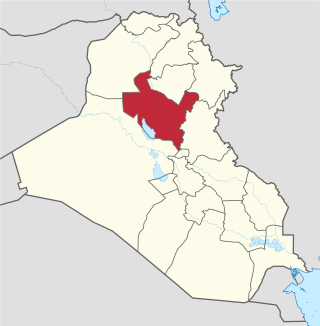
The Salahuddin Campaign was a military conflict in the Saladin Governorate, located in north-central Iraq, involving various factions fighting against a single common enemy, the Islamic State of Iraq and the Levant. The province exited Iraqi government control during ISIL's Northern Iraq offensive when large swathes of the north of the country were captured by the militant group with the Iraqi national army quickly disintegrating in the path of its advance. In light of the sweeping gains of the militants, Nouri Al-Maliki, the Prime Minister of Iraq at that time, attempted to declare a state of emergency though the Iraqi Parliament blocked his efforts to do so.

The Timeline of the War in Iraq covers the War in Iraq, a war which erupted that lasted in Iraq from 2013 to 2017, during the first year of armed conflict.
In early 2014, the jihadist group Islamic State of Iraq and the Levant captured extensive territory in Western Iraq in the Anbar campaign, while counter-offensives against it were mounted in Syria. Raqqa in Syria became its headquarters. The Wall Street Journal estimated that eight million people lived under its control in the two countries.
Shia Muslims have been persecuted by the Islamic State (IS), an Islamic extremist group, since 2014. Persecutions have taken place in Iraq, Syria, and other parts of the world.

Nafiseh Kohnavard is a multilingual correspondent who is focused on Middle East issues for BBC World Service/ BBC Persian.
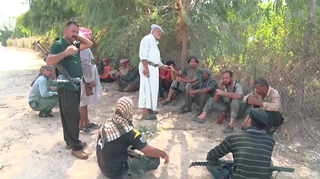
The Iraqi Turkmen genocide refers to the series of killings, rapes, executions, expulsions, and sexual slavery of Iraqi Turkmen by the Islamic State. It began when ISIS captured Iraqi Turkmen lands in 2014 and it continued until ISIS lost all of their land in Iraq. In 2017, ISIS's persecution of Iraqi Turkmen was officially recognized as a genocide by the Parliament of Iraq, and in 2018, the sexual slavery of Iraqi Turkmen girls and women was recognized by the United Nations.
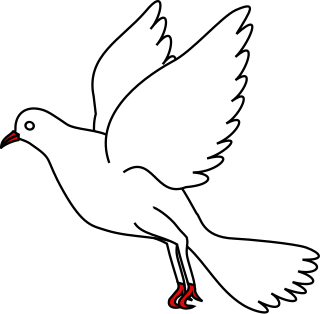
Saraya al-Salam is an Iraqi Shia militia formed in 2014. They are a part of the Popular Mobilization Forces and are a partial revival of the Mahdi Army. The name Saraya al-Salam means "Peace Brigades", to signify this the militia also uses a dove as a heraldic symbol. The group's name, together with its logo – which features a dove flying in front of an Iraqi flag – reflects Sadr's effort to maintain a peace with both Sunnis and the Iraqi central government. As of 2022, the group's operations are frozen, although it is still active but in smaller scale.












